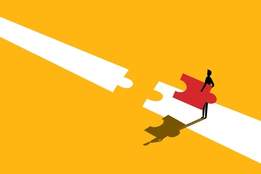Word of the Day
: June 22, 2019puckish
playWhat It Means
puckish in Context
"Ms. Jamon, with her charm and puckish humor, makes the restaurant feel like a home. For Christmas in 2009, after their move from Los Angeles, there was a fully decorated tree hanging upside down from the ceiling. 'Everything in the world seems upside down,' she said, 'so I decided to match it.'" — John Willoughby, The New York Times, 14 Mar. 2019
"[Thomas] Venning said the wheelchair became a symbol … of [Stephen] Hawking's 'puckish sense of humor.' He once ran over Prince Charles' toes—and reportedly joked that he wished he had done the same to Prime Minister Margaret Thatcher—and appeared in a 'Monty Python' skit running down fellow physicist Brian Cox." — The Salt Lake Tribune, 22 Oct. 2018
Did You Know?
We know Puck as "that merry wanderer of the night," the shape-changing, maiden-frightening, mischief-sowing henchman to the king of the fairies in William Shakespeare's A Midsummer Night's Dream. The Bard drew on English folklore in casting his character, but the traditional Puck was more malicious than the Shakespearean imp; he was an evil spirit or demon. In medieval England, this nasty hobgoblin was known as the puke or pouke, names related to the Old Norse pūki, meaning "devil." (There is no connection to modern English puke.) But it was the Bard's characterization that stuck, and by the time the adjective puckish started appearing regularly in English texts in the 1800s the association was one of impishness, not evil.
Test Your Vocabulary
What is the last name of the mischievous sprite in English folklore whose first name is "Robin"?
VIEW THE ANSWER










